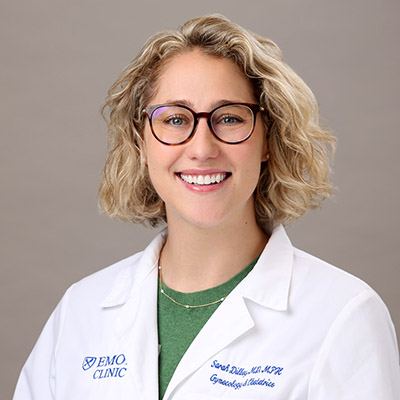
Letter from PD:
Letter from Program Director:
The Gynecologic Oncology fellowship at Emory University offers a comprehensive curriculum encompassing the full spectrum of gynecologic cancers. This includes diverse clinical, research, and teaching experiences in the prevention, diagnosis, treatment, and management of gynecologic malignancies to ensure our graduates achieve excellence. Clinical sites include the brand new 17-floor state of the art Winship Cancer Institute Emory Midtown (opened May 2023) as well as other Emory University clinical sites and Grady Memorial Hospital and our fellows benefit from the incredible breadth of both research and clinical opportunities at a major university. Our division has ongoing collaborations within the Winship Cancer Institute but also with the Rollins School of Public Health and with the Centers for Disease Control.
Emory’s Gynecologic Oncology fellowship training encompasses advanced surgical techniques including minimally invasive surgery, robotic surgery, and radical pelvic surgeries as well as opportunities to work closely with our surgical oncology, colorectal, and urology colleagues. Fellows will also gain proficiency in administering chemotherapy, targeted therapies, and immunotherapy, working closely with a multidisciplinary team of radiation oncologists, gynecologic pathologists, genetic counselors, and medical oncologists. Additionally, the fellows will be immersed in the burgeoning gynecologic oncology clinical trials program and actively participate in both the development and running of clinical trials.
Fellows will have dedicated rotations in radiation oncology and pathology and can participate in specialized clinics focused on genetics, integrative oncology, survivorship, Phase 1 trials and palliative care. Fellows benefit from mentorship in clinical, basic, and translational research throughout the fellowship but also with their entire first year dedicated entirely to research.
The aims of our fellowship program are to prepare the fellows to:
- Practice independently, both clinically and surgically, in gynecologic oncology by exposing trainees to a wide variety of cases and patient populations across diverse clinical settings.
- Excel in future academic roles through structured training in education and research that leads to an independent research focus and thesis.
- Elevate the standard of care for women with gynecologic cancers through targeted quality improvement training.
- Integrate seamlessly as members of a multidisciplinary team, optimizing the care and outcomes of patients with gynecologic malignancies through specialized rotations across other oncology specialties.
Sarah E. Dilley, MD, Fellowship Program Director
Didactics and Conferences:
Our fellows participate in weekly didactic sessions based on a year-long curriculum that ensures the full breadth of gynecologic oncology topics are covered. Our faculty deliver these weekly lectures, along with faculty from other specialties (radiation oncology, pathology, breast oncology, genetics, surgical oncology, etc.), forming a robust educational experience for our fellows. These didactic sessions occur on Wednesday mornings each week, during a time when there are no surgical cases, protecting this time for the division to participate together in this important educational activity.
In addition to the didactics on Wednesday morning, the fellows have protected time to attend the department Grand rounds, M&M, and actively participate in the Gynecologic Cancer Research working group meeting for the Winship Cancer Institute and our multidisciplinary Gynecologic Oncology Tumor Board.
Monthly, the divisions also hold a gynecologic oncology journal club, which is hosted at one of our faculty members’ houses in the evening. These meetings are one of the highlights of our program, which is spent reviewing landmark studies and new literature, as well as developing camaraderie among our division. Joint journal clubs are often held with other specialties (e.g., pathology, radiation oncology, research, surgical oncology, and reproductive endocrinology).
Application Information:
For the 2025 fellowship position and beyond, all applications must be submitted via the ERAS, and positions will be filled through the Match (NRMP). Note that we will be following the SGO Program Directors Network application timeline. More details can be found on their website: https://www.sgo.org/fellowships/.
Required Application Materials:
- Curriculum Vitae
- Personal Statement
- Three (3) Letters of Recommendation
- One must be from the Residency program director;
- One must be from a Gynecologic Oncology faculty member
- Letters may be either traditional format or Gynecologic Oncology Standardized Letter of Evaluation (SLOE)
- Copy of Medical School Transcript
- Copy of USMLE or COMLEX Transcript
- Copy of CREOG scores (see below on how to send)
- Copy of ECFMG certificate (if applicable)
After submitting your ERAS application, please send CREOG scores and away rotation score reports to Ashby Stone, Ed.D., Associate Director for Fellowship Programs, at ashby.stone@emory.edu.

